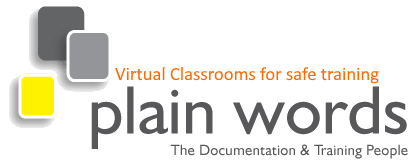Training Bulletin Issue 64
Kids can't spell, end of world imminent!
Never mind Trump or Brexit, the real scare story is that GCSE pupils make more spelling mistakes than their parents' generation, according to a recent article in the Daily Mail. Seriously, is this something we need to worry about? Well, yes, actually. It's not words like imminent, eminent or even immanent* that they're getting wrong; you could understand that. But when they can't spell 'off', 'too', 'said', 'myself' and 'thought' then you realise that there may be a real problem.
Wun sujeschun iz 2 mayk spelin funetik – nope, sorry, not having that, that just makes my brain hurt.
Why, oh, why?
Everyone knows that English spelling is rather irregular. The main reason for this is the patchwork nature of the language – it's a Frankenstein's Monster put together with bits and pieces from many sources over the millennia. Our spelling reveals the origins and history of our words, and this can be fascinating once you know a bit about it. It also gives you some ways to approach the whole problem of spelling.
If spelling is a problem, apply a methodical solution
The amount of action you need to take depends on how bad your spelling is. You might get away with just memorising the words you always get wrong. In many cases, MS Word will autocorrect a lot of common ones. If your particular problem isn't one of them, you can add it by clicking:
1. File
2. Options
3. Proofing
4. AutoCorrect Options
This displays a dialogue box where you can add your frequently misspelt word and its correct version.
If your problem is worse than that, a good starting point is this table of the most common irregular spellings in English.
| ache | acre | again | all | although | answer | antique |
| autumn | because | become | been | blood | bridge | castle |
| catch | chaos | circuit | climb | colour | comfortable | could |
| country | cycle | do | does | dough | door | dumb |
| earth | enough | eyes | father | few | find | friend |
| height | indict | island | journey | key | knee | lawyer |
| light | machine | mother | ocean | of | often | once |
| only | people | phrase | physical | please | quote | recede |
| rhyme | rough | said | seize | shoe | should | straight |
| sure | they | thought | today | Tuesday | unique | vegetable |
| was | water | Wednesday | were | what | who | young |
Don't feel you have to learn all of these. Go through the table and make a list of just the ones most likely to come up in your work. Look over your previous emails or other documents and add to the list the words you get wrong, based on the spell checker's red lines and on feedback from colleagues. Now you have a list that's specific to your needs.
Ways to learn spelling
We give lots of ideas on this in several of our courses:
- Effective Writing Skills for People with Dyslexia
- Perfect your Editing & Proofreading
- Business English as a Second Language
Contact us if you'd like to know more about these.
Different approaches are more or less effective for different people, but here are some you could try, and see which works for you.
1. Make up a reminder:
- Again has an 'a' again in it after the 'g'.
- The tall letter 'h' in the middle of 'ache' is the bit that's poking you and making you ache.
- An answer usually contains words so remember that there's a 'w' in it.
Some of these examples may help you but others might not. Can you make up your own?
2. Tap out the rhythm: r-o- (pause) u-g-h so you remember that rough has two letters then three more. Say the letters as you tap out the beat.
3. Visualise how the word looks:
- The word 'cycle' with a bit of a squint can look like a bike – the two c's are the wheels and the 'y' in between is the cyclist's leg reaching down to the pedal.
- In the word 'eye' think of the two e's as eyes with a long nose in the middle.
4. Learn about word families. Again, to keep this relevant, just focus on those likely to come up in your work. Here are some examples:
- Anything to do with the body that sounds like 'fi' will be spelt with 'phy-' (physical, physician, physiology)
- Anything to do with the mind that sounds like 'sy' will be spelt with 'psy-' (psychology, psychic, psychiatry)
- Anything to do with hearing that sounds like 'ord' will be spelt with 'aud-' (audible, auditory, audition, audience – those who listen)
* Imminent: about to happen, e.g., at time of writing, an increase in council tax is imminent.
Eminent: prominent or leading, e.g., the prime minister is an eminent figure in British politics.
Immanent: something intangible that is found throughout the universe, e.g., the Force if you are a Jedi.

